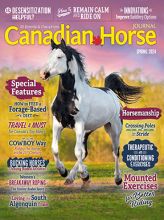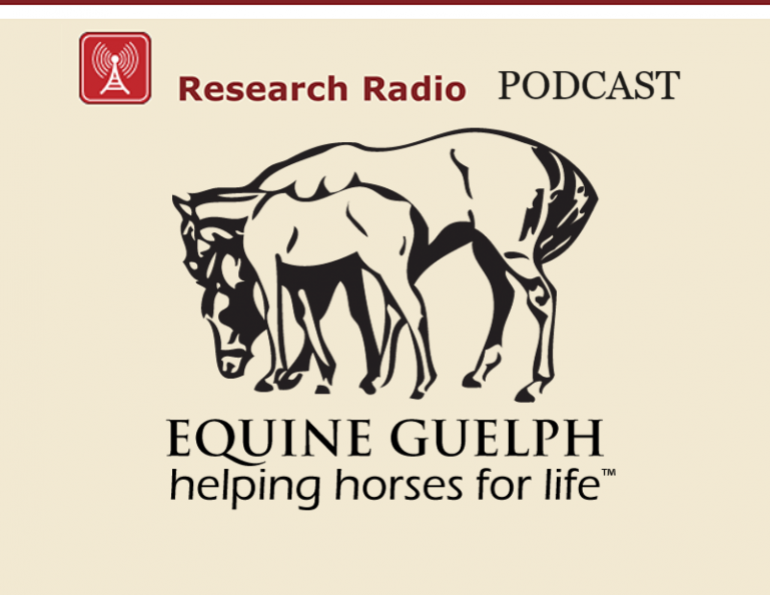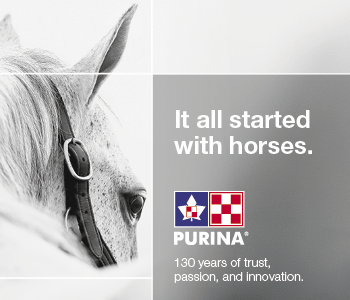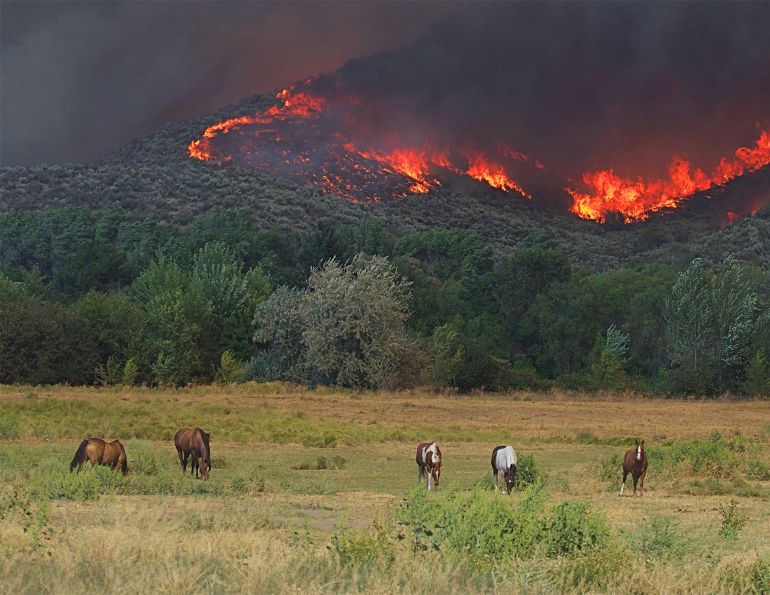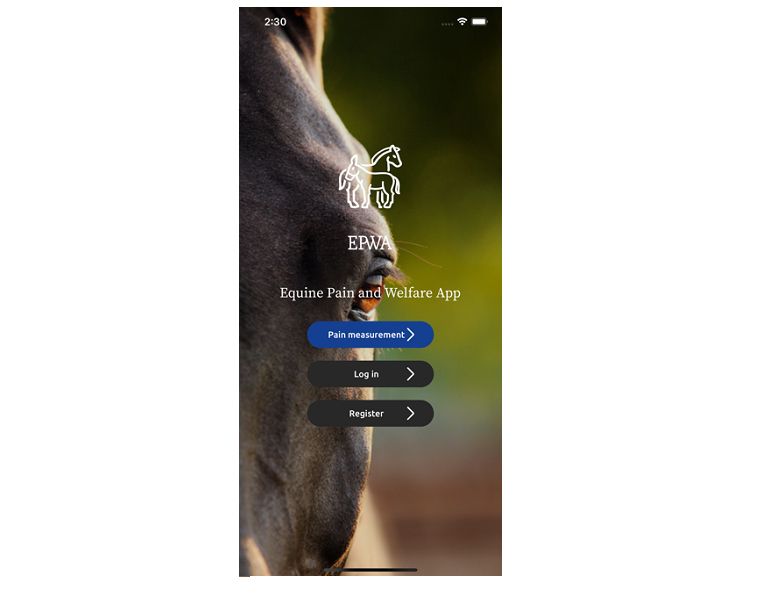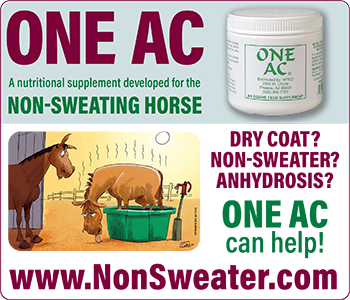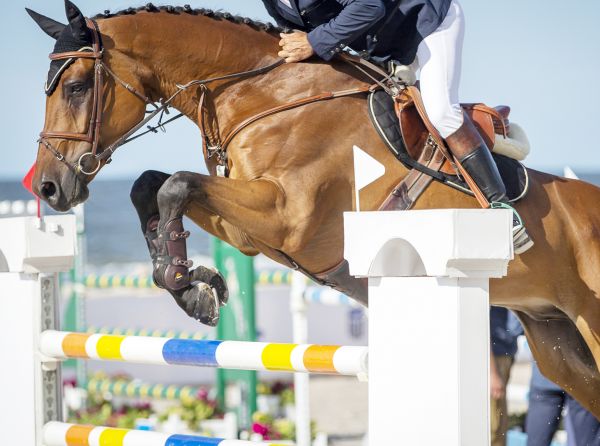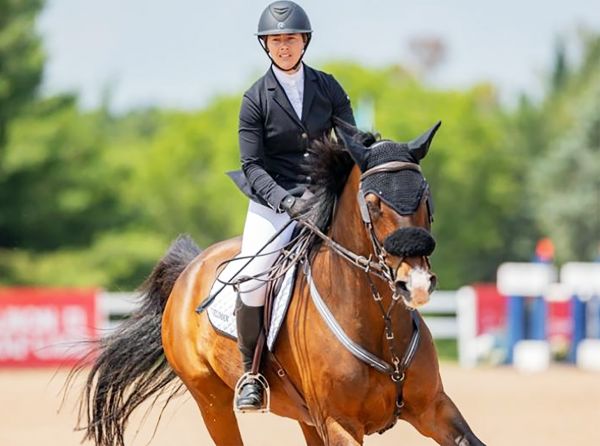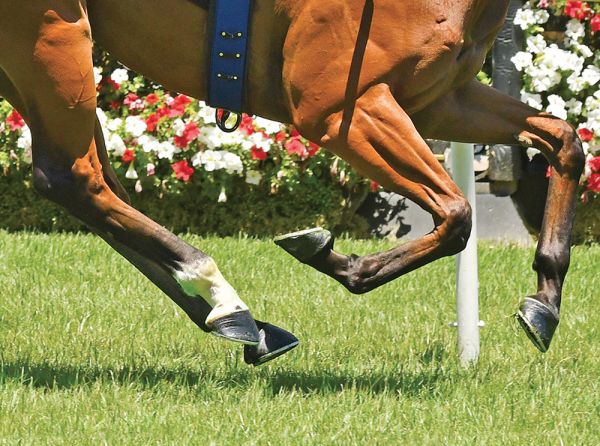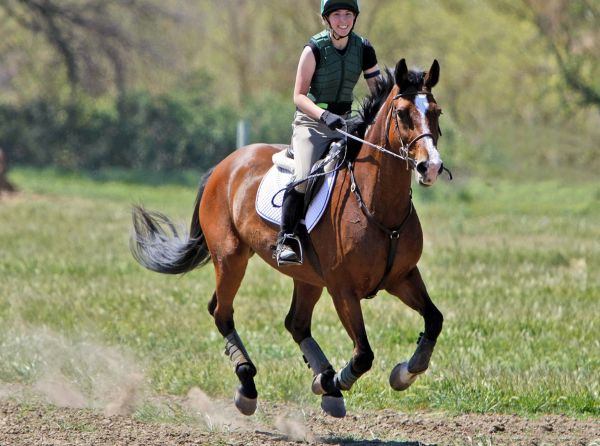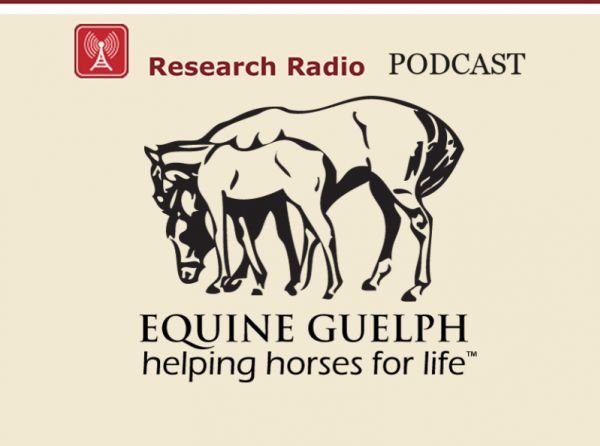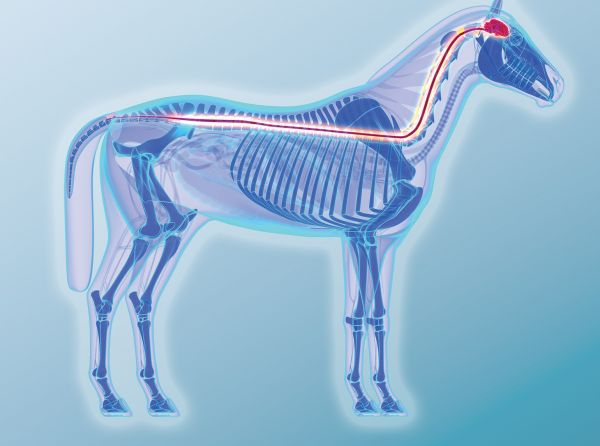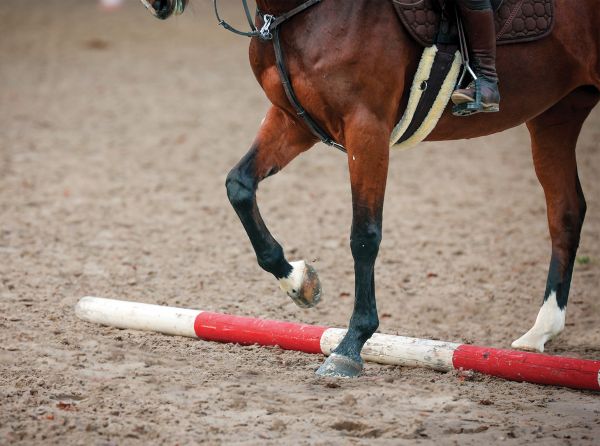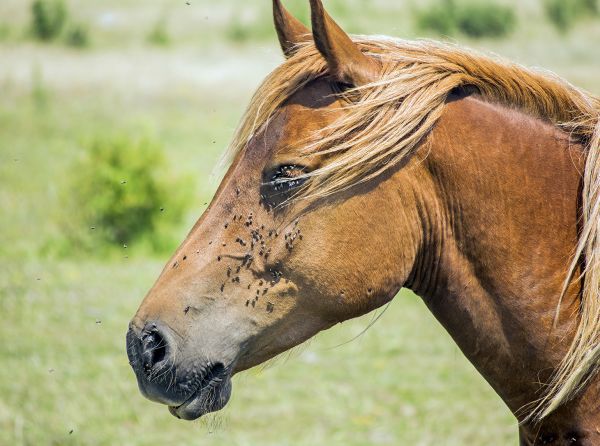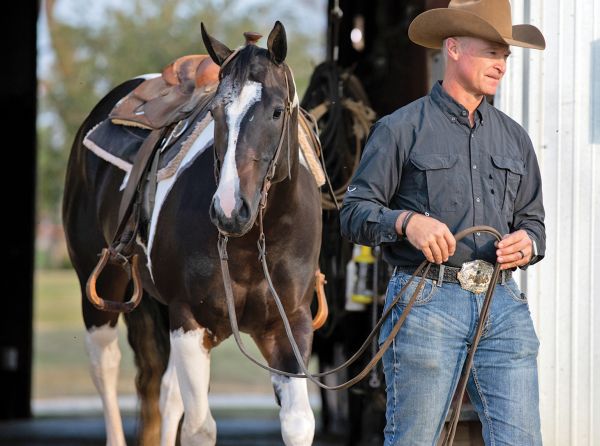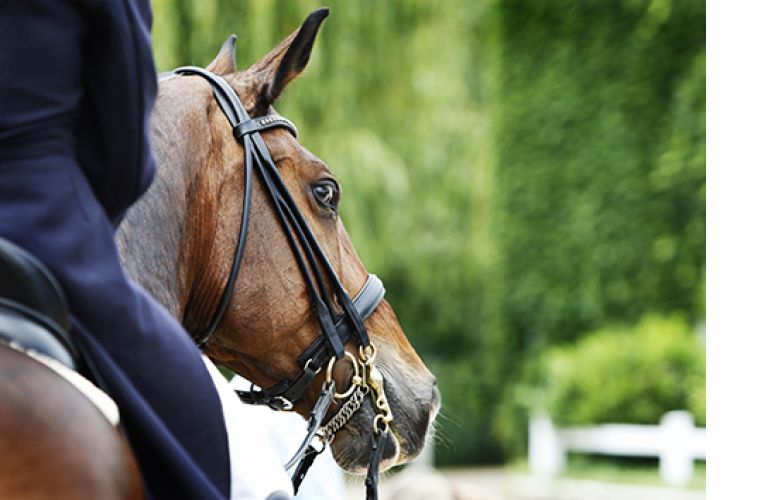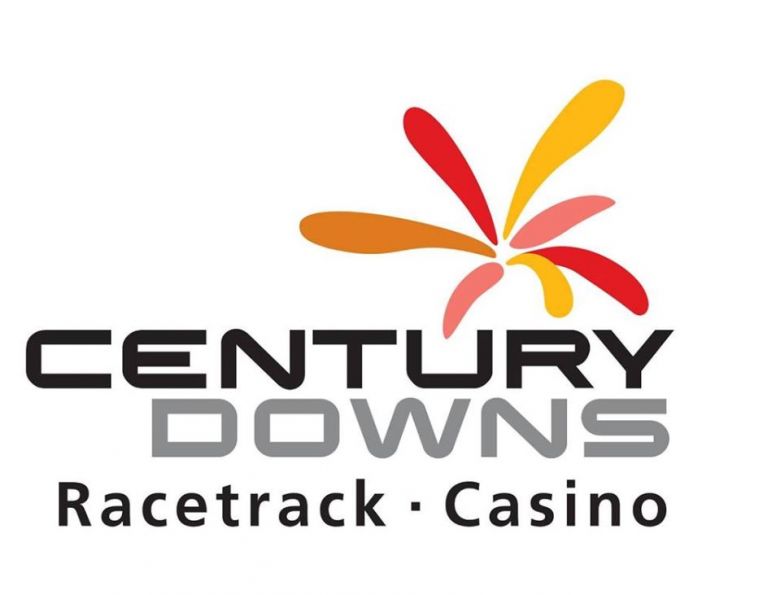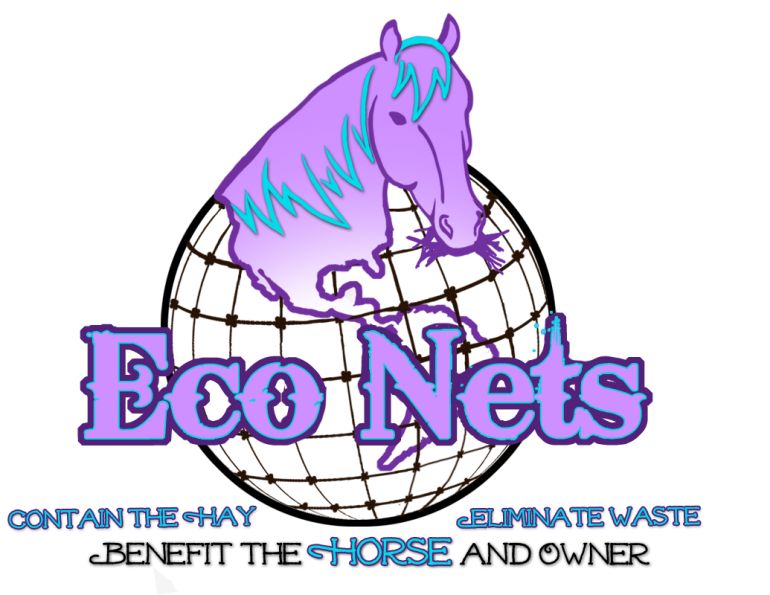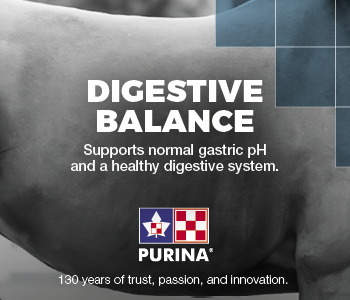By Lindsay Day, REMT
In the nine years that Whispering Hearts Horse Rescue of Hagersville, Ontario has been in operation, owner Brenda Thompson has taken in over 200 horses, giving them a second chance at a better life. A former OSPCA (Ontario Society for the Prevention of Cruelty to Animals) agent, Thompson realized that she could do more by opening an equine rescue facility when she left the organization.
The population of unwanted horses in Canada is believed to be a growing issue. “The trouble is we don’t have any numbers. But rescues are reporting to me that they are seeing more,” says Gayle Ecker, Director of Equine Guelph. “All you have to do is look on Kijiji and there are free horses everywhere. And we get calls here, ‘Can you help? Can you take my horse?’”
For rescues like Thompson’s, it is an ongoing challenge to keep up. But as she emphasizes many of these horses are perfectly good animals. “There’s a stigma that all rescue horses are broken, but that’s not case.” While certainly some horses are suitable as companion animals only, there are others that can go on to do more. Indeed, if you talk to owners of adoptive horses you will hear it again and again: These horses have so much left to give, if we just give them the chance.
Exploring Options
It was around the time that Jane Riley was considering getting a horse for her daughter that she learned about the Ontario Standardbred Adoption Society (OSAS) from a classmate in Equine Guelph’s online Equine Science program.
“My first question was: What’s a Standardbred?” she laughs. But she’s glad she asked. It was through OSAS that Riley and her daughter met Valid Victory, or Vic for short. He’s been a part of their family now for ten years.
With appropriate training, many racehorses – Standardbred, Thoroughbred, and Quarter Horse – have gone on to excel in other sports after their careers at the track. Adoption societies like OSAS that take recently retired racehorses into their program are one option for those considering adoption. Horse rescue facilities are another. These facilities may intervene to acquire horses bound for slaughter, have horses surrendered to them by owners no longer able to care for them, or provide critical care, rehabilitation, and re-homing services for neglect and abuse cases.
For Erinn Gillespie, adopting from a horse rescue is something she knew she wanted to do from the outset. As a veterinary technician at a small animal clinic, Gillespie says she observed a different dynamic between rescue animals and their adoptive owners. “It’s like they know they’ve come from a harsher place, and they are much more grateful. And then I got to thinking, if you are adopting from a rescue, you are actually helping two animals find a better life. Because you are taking one home, that means another space opens up for somebody else.”
Because equine rescue facilities are not regulated in Canada, Ecker encourages people who want to go that route to do their homework to ensure that the place they choose to support and work with is a reputable rescue with the knowledge, experience, and resources to provide appropriate care and re-homing services. A facility that takes the time to properly rehabilitate and assess the horses that come into their care will be in better position to determine the most suitable type of home and partnership for them going forward, she says.
Finding the Right Match
It’s said that adoptive horses often choose their new owners. When Heather Young was volunteering at a fundraising barbeque at a rescue, she went over to say hi to the horses. They were busy eating from a round bale, but one of them noticed her standing at the fence and looked up. “He was watching me, and then he just walked over and put his head on my head,” she says. When Young contacted the rescue later that night to inquire about the horse, she learned he’d already been adopted. But as fate would have it that home didn’t work out, and it wasn’t long before Young was making arrangements to adopt the horse herself.
When an adoption match is a good one, feelings of a strong bond or connection are not uncommon right from the initial meeting. It’s important, however, to go into that meeting with a clear sense of what you are looking for in a horse, says Gillespie. Such information is important for a rescue or adoption agency so they can determine which horses in their care are likely to be compatible. It can also prevent you from jumping in with your heart alone, she adds.
It’s for that reason that Gillespie decided to make a written list of what she wanted in a horse first, something she says she would recommend to others as well. “I listed everything: The things I was looking for, the stuff that would be an absolute no-no (like a horse with rearing issues), and then I also wrote down the stuff that I would be willing to work with, or would be willing to pay somebody to help me work with. And then I researched what the trainers would be charging, and factored that into my budget as well.” When Gillespie brought friends with her to the rescue – selected for their rational nature – she armed them with copies of her list too. “That part kind of backfired,” she laughs, recalling her tears when she first saw Athena – the horse she eventually adopted - at liberty in the arena. “I looked over to my friends and they were dabbing their eyes too. But in the end it worked out because we couldn’t find anything on that list that didn’t work.”
Ecker also emphasizes the importance of having realistic expectations for the horse you choose to adopt. A horse’s health, age, history, conformation, training, and personality can all impact their future prospects as a riding horse. “Some people may have great aspirations for a horse, but in reality they may not be up to the task. Some horses may be able to do it, but there are others that never will, and they shouldn’t be asked to either.” She suggests bringing a coach, vet, or others with horse experience to the farm to look at the horse as well.
The Application Process and Adoption Agreements
Whether you go through an adoption society or rescue facility, these organizations are dedicated to finding good homes for their horses. They will likely want to know about your experience, the sort of horse you are looking for, what you hope to do with him, where you plan to keep him, and whether you have considered all the costs and responsibilities associated with horse ownership. Many will require multiple visits with the horse prior to adoption, to see that there is a good dynamic, and a farm visit (to see where the horse will be going) is quite common.
Once a good fit has been found and both parties want to proceed, an adoption contract or agreement is typically signed. As Thompson explains, the agreement is to protect the horse as well as the adoptee. Common stipulations include the provision of a certain standard of care (including regular veterinary care), the prohibition of breeding and racing, and restrictions on the resale of the horse. If the horse doesn’t work out, the majority of organizations will take the horse back within a certain period of time (less the adoption fee, or some portion of it), or for some, at any period during the horse’s life. Follow up, particularly during the first year, is also common.
“Of the horses we’ve adopted out, only five have come back, and they’ve since been successfully placed in homes again,” says Thompson. Seeing the horses going to their adoptive homes, knowing how far they’ve come, is what makes her work at Whispering Hearts so worthwhile. “For me, that’s what it’s all about.”
Beyond adoption – Other Ways to Help
Not everyone is in a position to take on the responsibility of adopting a horse. But there are other ways to help out and get involved.
Sponsorship – A number of adoption agencies have permanent residents in their program that aren’t well suited for adoption. Sponsorship can help support their care.
Volunteer – From stable chores to giving a hand at special events, the help and support of volunteers is always appreciated.
Donate – In-kind or financial donations are another way to contribute. Some organizations have a “wish list” of items that would be most helpful for them. Attending a fundraising event can also be a great way to show your support and to get to know your local rescue or adoption society.
For more information on Whispering Hearts Horse Rescue visit: www.whhrescue.com.
Valid Victory

“I have owned several horses and ridden dozens in my lifetime, and Vic is the best by far,” says Jane Riley of the now 20 year-old Standardbred she adopted for her daughter, Averell, ten years ago. At 16.3 hands, and gelded at the late age of six, Jane was naturally concerned that Vic might be too much horse for her then ten-year-old daughter to handle. Until she met him for the first time, that is, and was struck right away by his kind and gentle nature.
Over their years together, Vic learned to jump and do dressage, proving himself to be a willing and valiant partner, whether out on the trails or in the show ring.
“Vets, farriers, barn staff and coaches all remark on his terrific attitude and perfect manners,” says Riley. “He is the bravest, most gentlemanly horse I have ever had the pleasure to know.”

Photos (above): The Standardbred gelding Valid Victory, now 20 years old, has proven to be a brave and willing partner to Jane Riley and her daughter, Averell. Photos courtesy of Jane Riley.
Athena
Photo (above): Athena and her foal when they first arrived at Whispering Hearts Horse Rescue. Photo courtesy of Whispering Hearts Horse Rescue
Part of a severe neglect case involving several horses, Athena was gravely underweight, and struggling to provide for the young foal by her side when she arrived at Whispering Hearts Horse Rescue. “I’ve seen pictures of her when they first got her and it’s something I find difficult to look at,” says Erinn Gillespie, who made the decision to adopt three years ago.
“There was just no life in those eyes. But today she’s a different horse.”
Erinn says she couldn’t have asked for a better partner. “She’s my heart and soul. She keeps me smiling every day.”
Photos (above): Athena has recovered from severe neglect and is now a happy, healthy mare. Photos: Marie Heidebrecht, Curly Tail Photography
Brandy
A volunteer at Whispering Hearts Horse Rescue, Judy Runge adopted Brandy last year, fulfilling her longtime dream of becoming a horse owner. Estimated to be around 20 years old, Brandy was severely emaciated when she first arrived at the rescue, but has come a long way since. As an older, gentle horse, suited only for light riding, Judy says Brandy is perfect for her.
“Even if I can’t ride her, I just enjoy being with her. We’ve really bonded, and who knows how long it’s been since she’s had that.”

Photos (above): Brandy was adopted by Whispering Hearts Horse Rescue volunteer, Judy Runge. Photos courtesy of Judy Runge
Norman
Photo (above): Norman, a former racehorse, was the inspiration behind an award-winning children’s book written by his owner. Photo: Ally Ruttan Photography
Norman has encountered a few bumps along the way since his early days at the racetrack, including the loss of his right eye. But Heather Young, who adopted the Thoroughbred from a rescue in 2010, says she wouldn’t trade him for the world.
“He’s really one-of-a-kind, and anybody who meets him feels the same.”
Inspired by his story and strength of character, Heather wrote an award-winning children’s book, Norman, about overcoming adversity, followed by a second title, with a third on the way.
“We’ve grown together. He’s been there for me through tough times, and I’ve never given up on him either, whereas a lot of people had.”
Photo (above) courtesy of Heather Young
Lindsay Day is a Registered Equine Massage Therapist and award-winning writer based in Guelph, Ontario. www.EQmassage.ca.
This article was originally published in the November/December 2014 issue of Canadian Horse Journal.
Main photo: Athena with owner Erinn Gillespie. “She’s my heart and soul. She keeps me smiling every day.” Photo: Marie Heidebrecht, Curly Tail Photography


